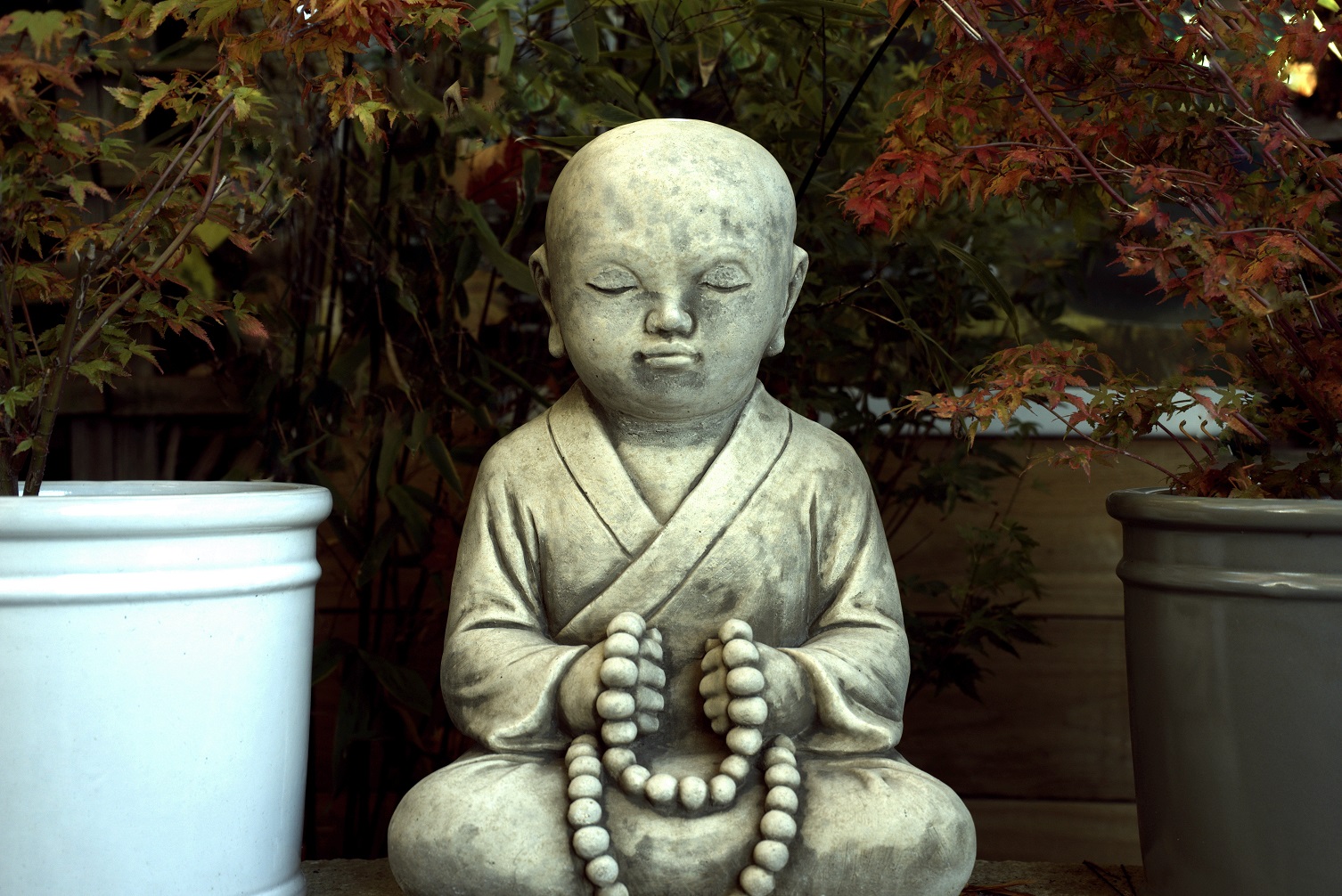
Mindfulness meditation can help you become more aware of your thoughts, feelings and surroundings. Research shows that it may also have benefits such as increasing happiness, reducing stress, anxiety and depression, and lowering blood pressure and levels of “stress” hormones such as cortisol. Or in other words – practicing meditation can make you a more fulfilled, less stressed person. There are many types of meditation practices — all with their own benefits. But generally speaking, there are two main types: sitting meditation ( mindfulness meditation) and moving meditation (yoga or another form of exercise). Both can improve your life — but each one is also slightly better suited to specific situations and goals.
Sitting meditation (aka mindfulness meditation)
Sitting meditation is one of the most well-studied forms of meditation. It’s also often recommended as the best meditation for beginners because it’s easier to do than other types of meditation. Sitting meditation is the practice of bringing awareness and attention to your thoughts and sensations — the sights, sounds, smells, tastes, feelings, and urges you’re experiencing in the present moment. Your aim is to observe these things with a curious, non-judgmental attitude. In other words, you don’t try to “make them go away” or change them, but stay aware of them while also letting them go. When you first start, you might find it difficult to stay focused on your breath or the present moment. That’s normal — the mind tends to be easily distracted. But with practice, it gets easier. As you learn to be more focused, you’ll also find that you’re better able to cope with stress. And that’s only the beginning of the benefits of this type of meditation.
Moving meditation (aka yoga or exercise)
Moving meditation is a type of meditation that is also a form of exercise. It’s also sometimes called “yoga” (regardless of whether or not the yoga you do is sitting or moving). This type of meditation combines a mental exercise with a physical one, such as yoga or tai chi. You focus on the sensations of your movements and your breathing, which is a technique called “mindfulness”. As with sitting meditation, you stay focused on your present moment experience, such as the sensations in your body or the flow of your breath. You don’t try to “clean up” or “fix” anything, but only stay aware of it while also letting go. Combining mindfulness with physical activity is a great way to get the benefits of meditation while also getting a bit of exercise.
Other benefits of meditation
– Stronger attention and focus – Meditation helps you become more aware of your attention, letting you see where it wanders. With practice, you can learn to bring your attention back to what’s most important — when you want to. – Better sleep – Meditating before bed can help you sleep better — by helping you relax. And that’s just the beginning of how it can help. If you have recurring thoughts or worries, meditation can also help you learn to let go of those thoughts. – Better health – Studies show that meditation can have health benefits such as lowering blood pressure, lessening anxiety and stress, improving mood and increasing feelings of happiness. Meditation can also help you cope with chronic illnesses and painful conditions like chronic pain.
How to meditate
Find a quiet place – A quiet place with no distractions — such as a quiet room or park bench — is best. You can also meditate while walking or while doing another activity, but you may find it more challenging to stay focused. Sit or lie down – You can sit on a chair or sit on the ground, but most people find it easier to meditate while lying down. Relax your body – Relax your body as much as possible, without falling asleep. Focus on your breath – You can focus on your breath as it goes in and out. Notice your thoughts – Notice your thoughts and feelings as they come and go. Don’t try to change them, just acknowledge them and let them go.
How to sit for meditation (with a few small changes)
You may have heard that it’s important to sit “correctly” while meditating — but what does that really mean? While there are many different meditation traditions, most of them have one thing in common: they advise you to sit with your spine straight. Your spine should be aligned as best you can — with your head, shoulders, and hips in a straight line. Your spine is like a column of support for your body. The top of your spine is the top of your head, so you want your head to be straight up, not leaning to one side or the other. The same goes for shoulders, hips, and feet. So when you sit with your spine straight, your shoulders, hips, and feet are all aligned.
Conclusion
When it comes to meditation, there are two main types: sitting meditation (or mindfulness meditation) and moving meditation (like yoga or exercise). Both are effective ways to improve your life, but sitting meditation is easier for beginners and sitting meditation is better suited to specific situations. No matter which type of meditation you choose, the benefits are most likely to happen if you continue to meditate regularly.
Why is meditation so powerful
Meditation is a simple yet highly effective way to improve your mental, physical and emotional wellbeing. It doesn’t take long to begin reaping the rewards of regular meditation; the technique has been shown to have a range of positive effects on both the body and mind in as little as 20 minutes a day. In fact, numerous studies have demonstrated that meditation can bring about measurable changes in our brain within just two weeks of practice. The benefits of meditation are many, but here are seven reasons why you should make it part of your daily routine:
It reduces stress and anxiety
Stress is one of the leading causes of poor mental and physical health. Thankfully, there are many different ways to reduce our level of stress, but not many are as effective as meditation. It has been proven that regular meditation can help to regulate our nervous system and bring our bodies back into a state of homeostasis. Regular meditation has been linked to lower stress hormone levels, lower blood pressure and a decrease in overall anxiety. Finding ways to reduce your stress is key to achieving optimal mental health and regulating your mood. Meditation is a great tool for reducing stress and managing your anxiety, so make it part of your daily routine.
It cultivates self-awareness and self-knowing
Meditation is a powerful tool for cultivating self-awareness. It teaches you how to notice when your attention has wandered from the present moment and re-directs it back again. This cultivates a state of being where you are able to observe your thoughts and feelings without becoming entangled in them; a state of being where you can witness your own mental process without being drawn into it. In this state of self-knowing, you are able to observe your own thoughts and feelings without being controlled by them. This can be incredibly useful in helping you to avoid unhelpful patterns in behaviour and negative thinking.
It builds mental focus and concentration
Another way meditation can improve your mental health is by building your focus and concentration. Through cultivating our ability to stay focused on the present moment, meditation helps us to avoid becoming distracted by our thoughts, feelings and external stimuli. We become less reactive to our environment which can be incredibly useful in helping us to remain calm and collected in even the most challenging of situations. When you build your ability to concentrate, you also increase your capacity for mental and creative work. This can be extremely beneficial for creative individuals and entrepreneurs. Meditation can help you develop a greater ability to focus on your work without being interrupted by thoughts or feelings that might divert your attention. With a greater ability to concentrate, you’ll get more done, and your creative work will benefit from your heightened mental clarity.
It promotes well-being physically
Meditation is an excellent way to bring about positive change in our bodies. It has been shown to decrease blood pressure, slow our heart rate, decrease stress hormone levels and even change our genetic expression. This is because meditation encourages us to change our relationship with stress and emotions. Instead of allowing our thoughts and feelings to lead us, we learn how to be in control of our mental and emotional state through regular practice. We can use meditation to change our relationship with stress. When we feel that familiar sensation of anxiety or other negative emotion, we have the ability to change our response by taking a few deep breaths and bringing our attention back to the present moment.
It helps us be more empathetic and compassionate towards others.
A side effect of meditation is that it can make us more empathetic towards others. This is because being able to witness our own thoughts, feelings and bodily sensations without identifying with them is a skill that can be applied to other people. Meditation helps us to be less reactive and more compassionate towards both ourselves and others. For many people, meditation can feel quite challenging in the beginning, but with practice, it can help to make us more compassionate towards both our own struggles and those of others. It can help us to put ourselves in someone else’s shoes and see the world from their perspective without judgement or bias.
It can help with depression and other mental health issues
Meditation is one of the most effective ways to reduce symptoms of depression. It has been shown to increase levels of serotonin and noradrenaline, both of which are critical in helping people manage their depression. Similarly, it can be incredibly useful in managing anxiety disorders and PTSD. When we are feeling depressed or anxious, we often have a hard time finding the motivation to take care of ourselves. Meditation is a gentle and non-invasive way to take care of your mental health. It also provides long-lasting benefits; studies have shown that meditation can help to reduce symptoms of depression and anxiety by up to 80%, even months after you’ve stopped practising.
Conclusion
There are plenty of reasons why meditation should be part of your daily practice. It can help to reduce your stress and anxiety, cultivate self-awareness and self-knowing, cultivate a greater ability to focus on your work, promote well-being physically, help you be more empathetic and compassionate towards others, and help with depression and other mental health issues. Given the many positive effects of meditation, it’s no wonder that more and more people are embracing this ancient practice. Whether you decide to meditate for 10 minutes or an hour, you can reap the benefits. The important thing is to find a way to make it a part of your daily routine.
